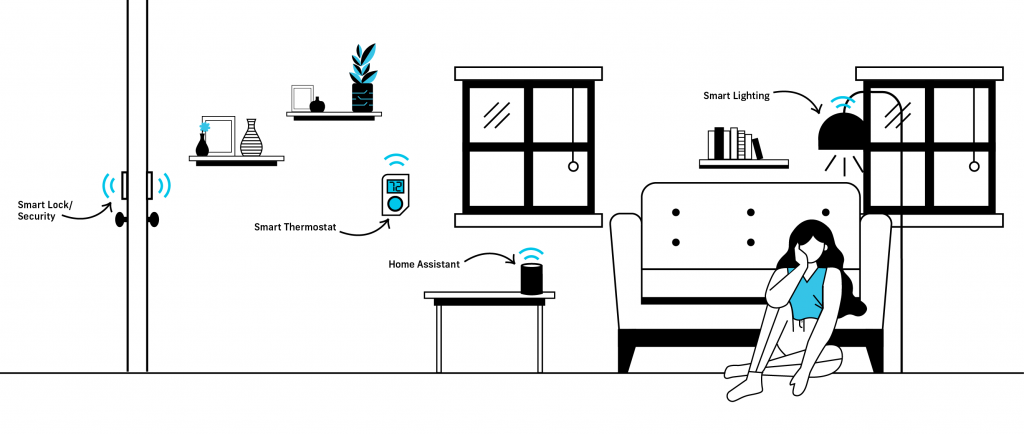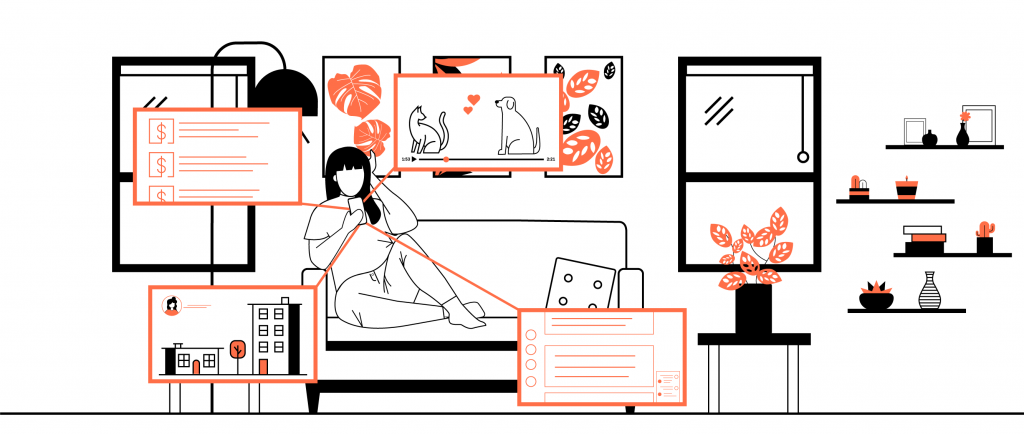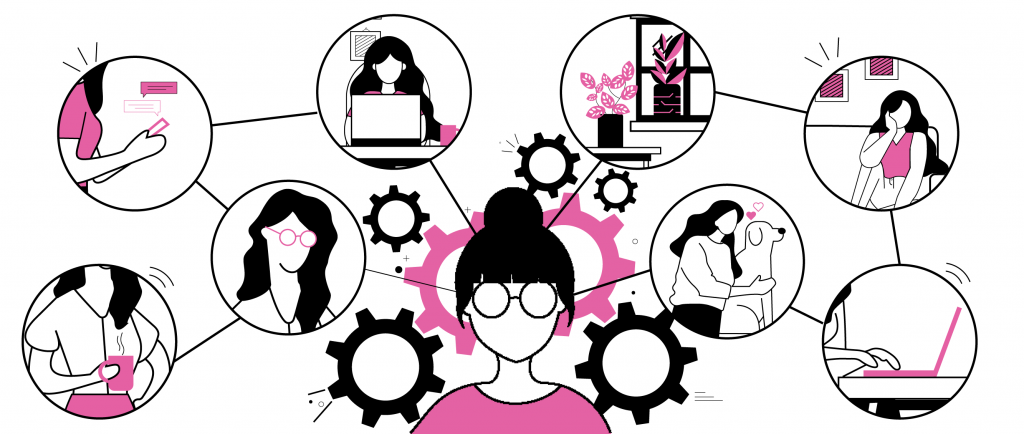Over the past three weeks we have highlighted a handful of industry, futuristic, thought filled topics on IoT technology, internet/data/broadband, and AI in customer service. To close out this series, we are combining these topics into one question and looking into how they can work together in the future. The topic: What could property management look like in 20 years?
Let’s start with a current check up. Property management has long been stuck in the 90s, and 30 years later now, the tech industry is catching up on the big opportunities that lie within apartments. Yes, some technology has existed in bulk capacity where property managers could utilize unique internet and smart tech options. But ultimately there were two big problems. It’s a bulky hassle and it’s very expensive…mostly due to the lack of innovation and number of pieces of hardware it takes to use.
That being said, the only property management companies and properties that can afford are, you guessed it, class A properties and large property management companies with a lot of money. These types of solutions, spanning from property management software to smart tech to internet do absolutely nothing on the subject of the rest of the property management and lower class property types. It’s inaccessible and unacceptable.
Fast forward to the present day. Technology companies are taking this and other challenges on, to innovate the multifamily industry and bring technology access to all property types. A while back we highlighted a handful of these companies that are paving the way for property management in 20 years. Companies like RentPlus and Viva First in finance, and Funnel and Plentific in operations.
This now leads us to the future. What could property management look like in 20 years? In around 2040, Gen Z will be in their 40’s. Some will be renting, some will own, but the focus will turn into the generation after Z…Generation Alpha (which I have to say sounds pretty badass). Based on the technology boom that has occurred in the past 20 years in all industries, it’s safe to say that Gen Alpha will be just as tech savvy as Gen Z.

IoT
Smart technology will continue to explode and become even more accessible in homes, especially in bulk solutions designed for apartments like we have here at Quext. But, besides the technology itself, it will continue to change lifestyles and become a reliable part of individual and family daily routines.
As we said in our IoT in 20 years blog, picture this: your alarm clock goes off at 6:30 in the morning, your blinds rise up to let in sunlight, light turn on at a dim, your coffee maker starts brewing coffee, bacon starts to fry, toothpaste is squeezed onto your toothbrush, the water in your shower starts turning on to the perfect temperature, food is dumped in your dog’s food bowl…all at once. Ultimate smart houses will be a place for regular consumers to full embrace technology…constantly.
Think about health sensors that scan your fingers every morning, determine your diet for the day and test for any illness. Robot assistants that help take your pets for walks and throw a ball while you’re at work, and don’t forget about 3D printed food made by voice command.

Internet
On the internet side of things, our VP of Broadband and Video, Larry, gave us a solid in-depth look at some of his thoughts. Here’s a highlight:
-Like the air we breathe, no one will know how fast or how much data you are consuming. Data caps, and “what speed?” questions will be a thing of the past.
-The ubiquity of big data, combined with greater transparency, will continue to raise challenges of security and privacy. Instead regulation on the internet will mandate the use of enhanced biometric identification (possibly DNA) as well as much more transparent and simple to understand privacy protections.
-Robot wireless data networks as well as wearables will enable VR to be fully immersive experience placing you:
- seamlessly in a collaborative work environment
- In the shoes of Tom Brady live in the pocket as he throws another TD (yes, he’ll still be an NFL QB in 2040, lol!)
- In a model apartment on a virtual immersive tour

AI for Customer Service
The main new form of customer service currently is centered around chatbots. We here at Quext have taken that one step further with some AI and turned that into Digital Humans. But what about further from that? Our developers gave their input:
“I’d guess that AI will move further into the background and be less flashy. Instead it will draw on massive amounts of data collection to predict each consumer’s needs based on their behavior and patterns. This will come at the expense of privacy. All online and in-person activity will be analyzed by AI and used for marketing. I think it’s possible that AI will completely take over the leasing process, with minimal person-to-person interaction before move-in.”
All in all, property management will change in so many different ways in 20 years including different pieces of what we highlighted above, and more. The bottom line is that the technology being introduced into the industry right now is transforming what the next 20 years will look like in property management.


